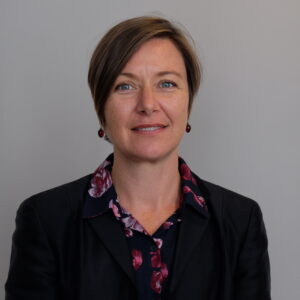 The police killing of George Floyd is forcing an overdue reckoning for our country. To face up to the reality of police brutality and violence against black and brown communities is to face up to the ongoing menace and legacy of white supremacy.
The police killing of George Floyd is forcing an overdue reckoning for our country. To face up to the reality of police brutality and violence against black and brown communities is to face up to the ongoing menace and legacy of white supremacy.
It is not enough to not be racist; we must actively be anti-racist. As the white leader of a health justice organization with a predominantly white membership, I know that we cannot carry on our work to address and end the breast cancer epidemic, especially for people of color, without also working to address and end white supremacy.
Breast cancer has always been a social justice issue: people of color are more likely to die of this devastating disease, while corporations profit from pink ribbons, and cheerful platitudes lack urgency. Breast Cancer Action’s founders were active in the Women’s Liberation, Gay Liberation, Black Liberation, and anti-war movements and they knew that systems of oppression work to reinforce each other. They saw how racism, patriarchy, homophobia, ableism and other oppressions are connected, in the breast cancer epidemic and in our society.
They turned their outrage and fear into action.
I’ve found that, for me, grief and anger are two sides of the same coin. Participating in a car caravan protest this weekend for Justice for George Floyd, Breonna Taylor, and Steven Taylor, I felt the similarity to a funeral procession. And it was powerful enough to push me past the hard wall of my protective anger and outrage to the wrenching grief on the other side.
Watching George Floyd being slowly and needlessly killed by a police officer opens a door to the devastating heartache of actually seeing the suffering, exploitation, torture, abuse, and deaths that come from governments infused with white supremacy.
Both grief and anger are powerful motivators.
We have work to do together. And many of us with white privilege have our own work to do individually to confront anti-Blackness and take concrete steps to create change. It will not be easy. But it’s necessary. It will not be quick. But it’s imperative.
We cannot tolerate the attacks on our Black sisters, colleagues, friends, neighbors, and lovers from the police and white vigilantes any more than we will accept the threat of breast cancer. We will continue to do social justice and anti-racism trainings with our staff. We will continue to speak out against injustice. And we will step back and listen to and learn from our Black staff, members of our Board of Directors, community members, and allies. I invite you to add your voice to this important conversation. We must use the power and privilege we have to bring about the systemic changes needed for a more just and healthy world.
In the words of Audre Lorde, “There is no such thing as a single-issue struggle because we do not live single-issue lives.”